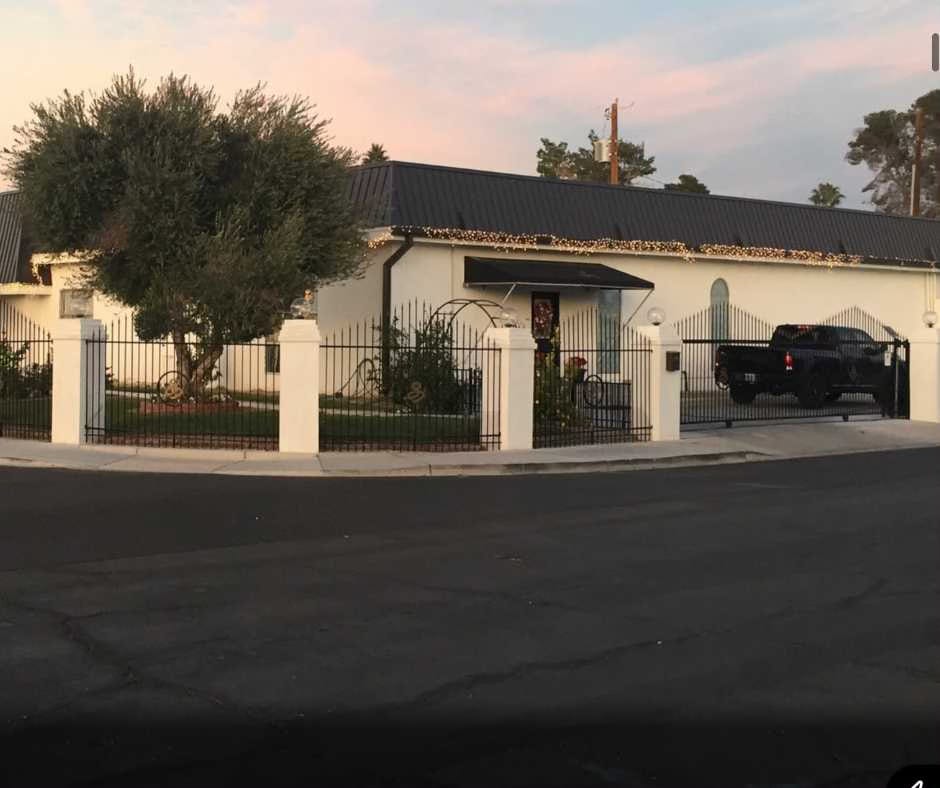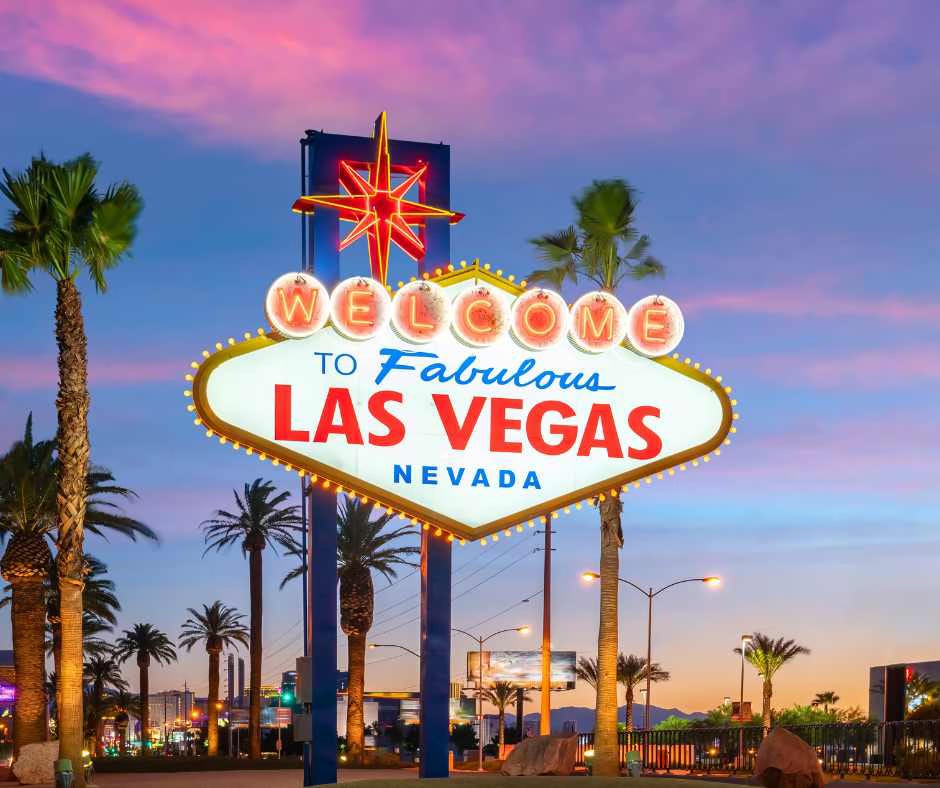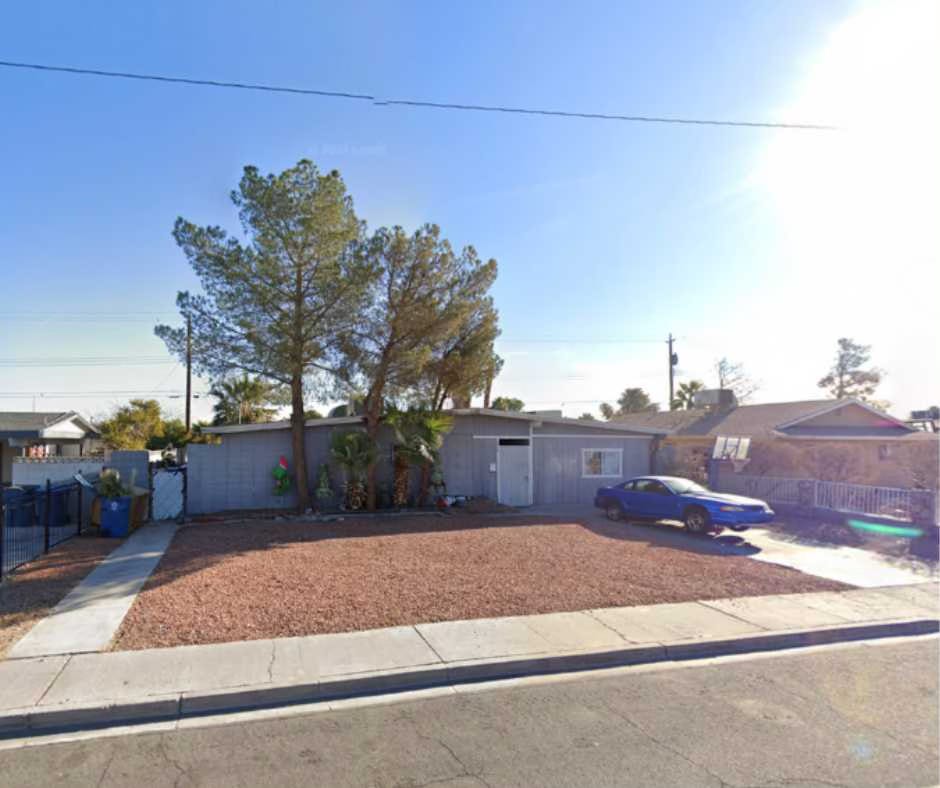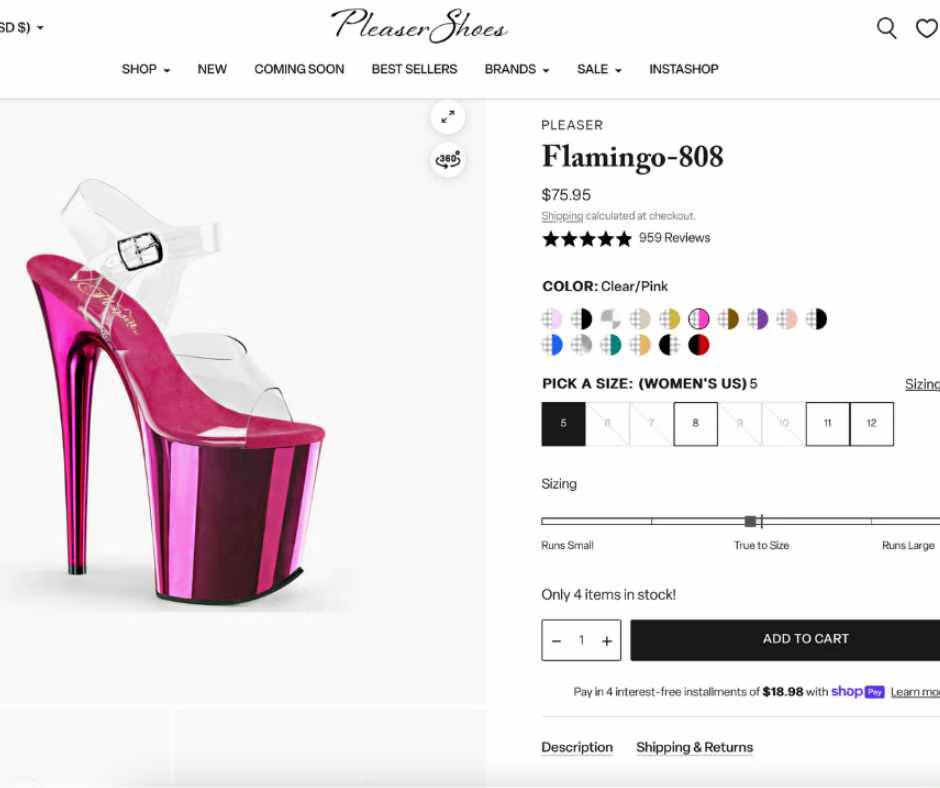"I am always drawn back to places where I have lived, the houses and their neighborhoods." ~ Truman Capote
This week, I had a conversation with a subscriber regarding last week's newsletter, during which she remarked that the neighborhood I currently live in seemed like a nice place to live.
It is.
But it isn’t the place that resonates with me. There is a certain conformity one must abide by to fit in here, and conforming has never been my thing.
Las Vegas isn’t known for conforming
I lived on Wilbur Street for a number of years, approximately 2.13 miles east of the Las Vegas Strip. Technically, the house was located in Paradise Township, named after the 1931 Pair-O-Dice nightclub, which once stood on HWY 91, south of the Strip now known as I-15, the main artery between Las Vegas and Los Angeles.
Paradise Township is an unincorporated section of Clark County adjacent to the original downtown City of Las Vegas. It lies south of town along the old L.A. highway, now Las Vegas Blvd South. Also known as Paradise Valley, it encompasses the Las Vegas Strip from the Sahara Hotel down to the recently closed Tropicana Hotel & Casino. It stretches one mile wide and four miles long.
A group of casino executives, led by Gus Greenbaum of the Flamingo, lobbied the county commissioners for town status, which would prevent the city from annexing the land without the commission's approval. The commission voted to create the unincorporated town of Paradise on December 8, 1950.—Wikipedia
Desert Inn casino tycoon and builder Wilbur Clark's Paradise Gardens was developed in the early 1960s. He named the streets after his relatives, with names such as Dorothy, Lulu, Shirley, and Wilbur. My house was constructed in 1964.
The neighborhood was unremarkable, but the house did have a kidney-shaped pool that reached nearly 11 feet in depth. It was perfect for diving or simply sinking to the bottom and holding my breath to escape the scorching 100-plus-degree days of summer. However, the Tipuana tipu tree root from the front yard had begun to uproot the kitchen floor, and I had to find ways to maintain balance while sitting at the dining table, enjoying my first cup of coffee and reading the paper before my nightshift began.
People believe it’s the gambling and entertainment that sets Las Vegas apart from the rest, but that’s not entirely true. It’s the cast of characters that come and go and carry on their lives in ways that might not seem quite the norm, especially evident in neighborhoods like Paradise Gardens and surrounding areas off from the Strip.
Wilbur Street
Circa 80s I moved into the old house on Wilbur Street amidst palm-lined streets, where the struggle against the harsh dry conditions led to frequent lawn replacements with fresh sod when I forgot to water the grass. The neighborhood bloomed with Oleanders, Bougainvillea, Lantana, and Desert Marigolds—the vibrant colors provided a welcome contrast to the browns and tans of the desert scape. Xeriscaping hadn’t become a thing yet.
Moving in with Partner, who managed legally suspect businesses, we balanced our full-time casino jobs with a comfortable lifestyle.
From our home, we operated successful ventures including a small money lending business, a bookmaking operation centered on football and baseball seasons, and also sold herb, aka marijuana.
Caught between the longing for love
And the struggle for the legal tender
Where the sirens sing and the church bells ring
And the junk man pounds his fender—The Pretender, song by Jackson Brown
I was working a full-time night job in the casino and attended UNLV part-time in the daytime. Partner aka Married Guy was 20 years older than me and had a large family to support. I wrote more about the relationship here:
Anyway, we made a colorful contribution to the neighborhood. And many times our enterprises crossed paths with our neighbors, some who were as business diversified as we were.
The neighbors
Candice the exotic dancer
Candice (and don’t call her Candy) danced in a high-end gentlemen’s club close to the Strip. She was one of our frequent herb buyers. When she came over it was social etiquette to offer her something to smoke while she waited for product to be weighed, packaged, and priced to sell.
Candice’s mother, a former showgirl and professionally trained dancer, was instrumental in launching MGM's Jubilee, one of the era's most prominent stage productions. Growing up, Candice spent her teenage years backstage, observing her mother's rigorous routine. She watched her applying layers of stage makeup, swiftly changing costumes between performances, and giving it her all in each performance.
She often joined her mother in the nightly ritual of soaking in the therapeutic hot tub, helping her mom unwind and recover from the sore muscles and aching bones that her job demanded in order to make a decent living and provide for the two of them.
We both started UNLV the same semester. Despite the age gap, we quickly became friends in our Ballroom Dance class. As we got to know each other, we realized we were neighbors. She smoked pot, while I sold it; she pursued dance, and I was a crap dealer.
Considering we were already earning more than we could out in the normal world, we both questioned the value of attending college. Surprisingly, we shared the ambition of becoming nurses. My desire stemmed from a wish for a career that offered movability, contrasting Candice's aspiration for a sustainable profession. She wanted to avoid ending up like her mother, who worked without a plan for the future.
“My time in the is business is limited; it will only take me as far as my body lasts,” she said. “I’m born and raised here, and I know where this can go if I don’t have a plan… I’m not going to end up like my mother.”
I was the receiver of her hand-me-down Pleasers, she taught me how to apply false eyelashes, and one time she had to take a mandatory drug test and used my urine to pass it.
One day, she pleaded, “I need to use your pee to pass a urine test, please. Here's $100, take it” as she handed me a crisp, new one-hundred dollar bill. I peed in a glass and we then transferred the liquid into a condom—she quickly placed it in a visually unidentified body part and went on her way.
I didn’t ask who “they” were or “why” she had to submit to a drug test—sometimes it’s better not to ask questions.
Bobby the midget
Technically, Bobby Kay was a dwarf, but somewhere along the line, he became known in the streets as 'Bobby the midget.'
The New Jersey born little big man was once a casino host for Caesar’s Palace. He partnered and answered to reputed wise guys such as bagman Jerry Zarowitz, Crazy Joe Gallo, and assisted Frank “Lefty” Rosenthal at the old Stardust Hotel and Casino.
After large corporations took over Las Vegas, and the influence of the Outfit waned, Bobby the Midget elected alternatives to stay in action.
He shifted towards working collections for various enterprises, including money lending and local bookies. His specialties were primarily focused on track betting, particularly horses, and sports.
Bobby’s 'larger-than-life persona' persisted long after Las Vegas became dominated by corporate interests.
“You can learn a lot from me, baby. You got to have the right attitude and the whole world will come to you I’m short, but baby, nobody’s got a better personality as a human being.”—Excerpt taken from John L. Smith’s On the Boulevard column, Las Vegas Review Journal circa 2000
Bobby drove a white 1976 Cadillac Fleetwood Eldorado. Every afternoon around 4, just as I was waking up and heading out to retrieve the daily newspaper, he would drive by. I'd have to quickly scan the street before dashing out to grab the paper.
Bobby was a talkative person. If he spotted either me or Married Guy outside, he would pull up and stop to chat. Sometimes, these conversations would last for 20 minutes or more. After just waking up and stepping out into the scorching Las Vegas sun, the last thing I wanted to do was stand on the hot concrete and asphalt, feeling the heat burn through my slippers, engaging in idle bullshit.
After work I stopped by the Village Pub for my nightly drink and a little video poker play, that sometimes extended into a mid-day binge, just as Bobby would arrive at 4 am for his first cup of coffee before starting his rounds. I found myself much more talkative during those pre-dawn hours, and our roles would reverse; Bobby usually left after his second cup.
“…I’m 35 but I’m 70. And handsome too, don’t you think? I’m Bobby Kaye. Everybody knows me. I’m known from coast to coast like buttered toast…”—Excerpt taken from John L. Smith’s On the Boulevard column, Las Vegas Review Journal circa 2000
Liberaci

Liberace, the famous pianist and entertainer, was known for his flamboyant style and larger-than-life persona. He lived at the north entrance of Wilbur Street, off Tropicana Boulevard, a main east/west thoroughfare in Las Vegas.
I never bumped into or even saw him. I saw his personal staff coming and going. And several times spotted his then paramour Scott Thorson coming in and out, a super creepy looking guy, but no judgment here, my own relationship at that time was a bit of a train wreck.
He lived in a lavish home—second-hand information coming from the images I read in the grocery store tabloids. Neighbors who lived near him, often seen walking dogs or pushing strollers down our street, shared details of his home, and stories of his kindness, such as hosting impromptu parties and random performances. While there may have been occasional disruptions due to his fame and the attention he attracted, these were only briefly mentioned.
Overall, Liberace gave our neighborhood a memorable presence.
I left Wilbur Street (permanently) in the 90s. The characters had moved on, though I’m certain if we took a drive through the neighborhood today we’d find something happening or someone interesting. It was one of my favorite places to live and I will always cherish the good… and leave the rest behind.
Epilogue
Candice eventually failed a random drug test—the condom burst in the reception area of the lab— and she landed a two-year prison sentence. Upon her release, she returned as a house mother to the same strip club where she had previously worked. Recently, I found her online, where she now teaches a virtual course called Baby Strippers, helping beginners and newbies break into the business.
Bobby the Midget is still alive at this writing. His house was torn down, in fact the entire block was razed, no further information was available. He would be 96 years old this coming November. If he’s alive, I hope he’s healthy, and still happy.
In 2013, Liberace’s home was purchased by a United Kingdom businessman and fan, who restored it to its original opulence. It used to receive 300,000 visitors a year but closed in 2010 when annual visitors dropped to 50,000. It is no longer open to the general public, but it does open its doors to private guided tours and special events. I’ve been told it is magnificent and worth making arrangements to visit; the tour takes around three hours to complete.
And as for me? I’m sitting on the living room floor gazing out into the backyard, watching the squirrels steal seed from the bird feeders. I’m debating whether to use the new purple or pink water pistol to shoo them away—or maybe I’ll find a dart and throw it at the world map hanging on the wall, letting chance choose the next move.
See you next week!









I question my writing daily. Like you I have not been writing my whole life either. Sharing what I write feels like walking down the street naked. But what the fuck do we have to lose? Sorry for the expletive. I read everything you write because I understand and relate to what you are doing even though our experiences are night and day. But that’s the best part.
Keep writing. Don’t hesitate. I love the juxtaposition of hiking in Maine, the detox place and life in and near the Vagas strip. You write well and you have lived an amazing life. Kudos to you for sharing it.